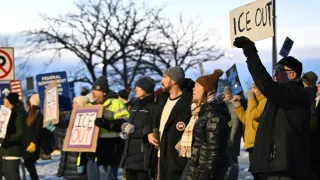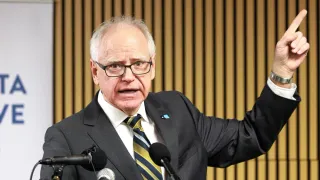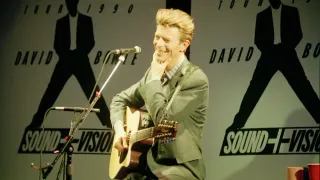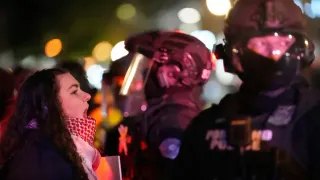January 30, 2025
Filmmaker Bruce David Klein on How Liza Became Liza (With a Little Help from her Friends)
Robert Nesti READ TIME: 14 MIN.
Liza. She is one of the handful of performers recognizable only by first name. And mentioning it brings images of sequins, jazz hands, and Studio 54. The child of Hollywood royalty – her mother is Judy Garland, her father, Vincente Minnelli, she discovered as a teenager that such pedigree came with a price. According to Garland's biographer Gerald Clarke, it was during her formative years that she learned to be on a "permanent death watch." And when her mother died in 1969 when Liza was 23, she had to build a career out of her mother's shadow.
That she did so in such mercurial fashion is chronicled in Bruce David Klein's wonderfully entertaining documentary "Liza: A Truly Terrific Absolutely True Story." Within four years, she would have an Oscar for "Cabaret" and an Emmy for "Liza With a Z." She had previously won an Tony in 1965 for her Broadway debut in "Flora the Red Menace," and would win two more (for "The Act" and "Liza at the Palace"), as well as clinch EGOT status with an Honorary Living Legend Grammy Award in 1990. As Klein says in the interview below, after her break-out role in "Cabaret," Ms. Minnelli was akin to Taylor Swift – an unstoppable show business juggernaut living her life in the public eye.
Watch the trailer to "Liza: A Truly Terrific Absolutely True Story."
That also came with a price. Hanging at Studio 54 with Andy Warhol, Halston (her designer of choice), and Bianca Jagger led to tabloid stories of drug use, which were confirmed when she entered the Betty Ford Clinic in 1984 while appearing in "The Rink" on Broadway. None of her four marriages worked out, and she was said her biggest regret was not having children. (She had three miscarriages.) And, more recently, her frail appearance at the 2022 Academy Awards led many to believe she was gravely ill, which was promptly denied by her long-time collaborator Michael Feinstein who maintained Liza was sabotaged by the Oscar production team.
Klein does much to repair that image with interviews with the feisty and candid Minnelli that dot the film. In her late 70s, she is open about her career and personal life, both the triumphs and foibles. "How lucky I was to have gone through all of the bad stuff that I have gone through because it prepared me for the rest of my life." she says in the film.
Throughout the film, Klein takes a glass-very-full approach towards his subject, pretty much avoiding Ms. Minnelli's darker scenario to concentrate on the vivacious, uber-talented performer with copious footage of her in the 1970s. It was some of that footage found in Ms. Minnelli's vault that brought to Klein's attention that prompted him to make this film. And takes a unique approach to his subject: looking at the forces and personalities that shaped her career and life with interviews with many of her friends and colleagues (Michael Feinstein, Mia Farrow, the late Chita Rivera), as well as portraits of the personalities that shaped her career (Kay Thompson, Fred Ebb, Bob Fosse).
Below is an interview, edited for brevity, with Klein about his film, which is currently playing in New York City and opens in Los Angeles on Friday before expanding to a wider release in upcoming weeks.
EDGE: How did you come up with the title?
Bruce David Klein: In the end, I felt very strongly that the title should come from her. And in the film, she talks about working with Fred Ebb, who wrote the patter for her in "Liza With A Z," and she says, "I have a truly terrific, absolutely true story for you." So it kind of all worked. And I always, for some reason, seemed to be partial to longer titles. That's probably stupid, but I just I like ones that are full of meat.
EDGE: When I saw the film in Provincetown, you said you chose to include a lot of footage of Liza in the 1970s when she is an electrifying performer to counter the image of her as the woman in the wheelchair at the Oscars in 2022. Why was that important for you?
Bruce David Klein: Well, the film came about after we were alerted by Liza's people that there were hours and hours of 1970s footage in Liza's vault. That footage is one of the reasons we – my co-producer and myself – wanted to make the film. Watching it, our jaws just dropped. It reminded us of the explosive talent she was in the 70s. So it was a no-brainer that if you're doing something on Liza, you need to dive in to the 70s. But we felt we needed a perspective. The "Cabaret" story had been told; the "Liza With a Z" story had been told; the "New York, New York" story had been told; which is how we came up with this counter narrative about her mentors.
EDGE: Yes. You tell the stories of how many of these artists – Kay Thompson, Fred Ebb, Bob Fosse (amongst others) – were instrumental in shaping Liza's career after the death of her mother, Judy Garland, in 1969. Where did that concept come from?
Bruce David Klein: I must give credit where credit is due. In part from Liza herself. One of the things I often say in the Q&A sessions I have at screenings is that she is one of the most generous celebrities I have ever met. She constantly says of these mentors, "he invented me" or "she invented me." I remember asking her about Fred Ebb, and she stopped my question. "Oh, Fred invented me!," she said. And it all clicked for me. That is the way she sees herself. She was lucky enough to find and nurture these relationships with geniuses who fueled her unique take on performing. It was after the death of her mother that she was able to spread her own wings, but that came through the help of these geniuses. And their stories are an important part of how Liza became Liza.






